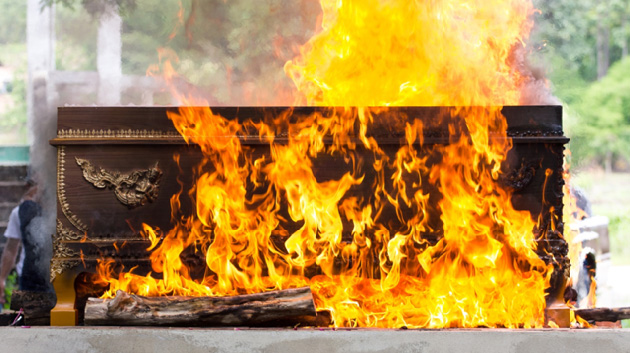WHO Denies This But…?
Infections of Covid-19 Lower for Countries That Cremate!?
Since Buddha is said to be cremated, cremation is a mainstream for Buddhists. They believe that this allows people to cut off their attachment to their physical selves.
There has been an interesting trend that countries that perform cremations have lower infection rates of the novel coronavirus (*1).
It is true that countries with high infection rates including the Islamic Middle East and the primarily Christian Europe and America bury their dead due to their philosophy of resurrection: they believe in leaving a place that the soul can return to.
Meanwhile, the World Health Organization (WHO) denies the relationship between burial methods and infections, stating that there has been no evidence that Covid-19 transmits through corpses (*2).
However, it is very possible for soils and animals that have been in contact with an infected corpse or their bodily fluids to act as a carrier. In prioritizing religious sanctity, the WHO’s fear of retaliation from various religious organizations may have surpassed the potential risk that burials can bring about.
Japan has faced a similar dilemma in the past. The Meiji Administration, at the beginning, banned cremation because it was too “Buddhist” and against the beliefs of Shintoism. However, when cholera was brought in from foreign countries and spread explosively throughout the nation, the government gave up their traditions in return for human lives, lifted the ban for cremation, and made it mandatory to cremate the infected dead bodies. Japan became a cremation-based nation because of this.
Groups that currently prefer burials over cremation may need to change their customs, and instead believe that people resurrect in the other world as souls, instead of coming back to their actual, physical bodies.



















